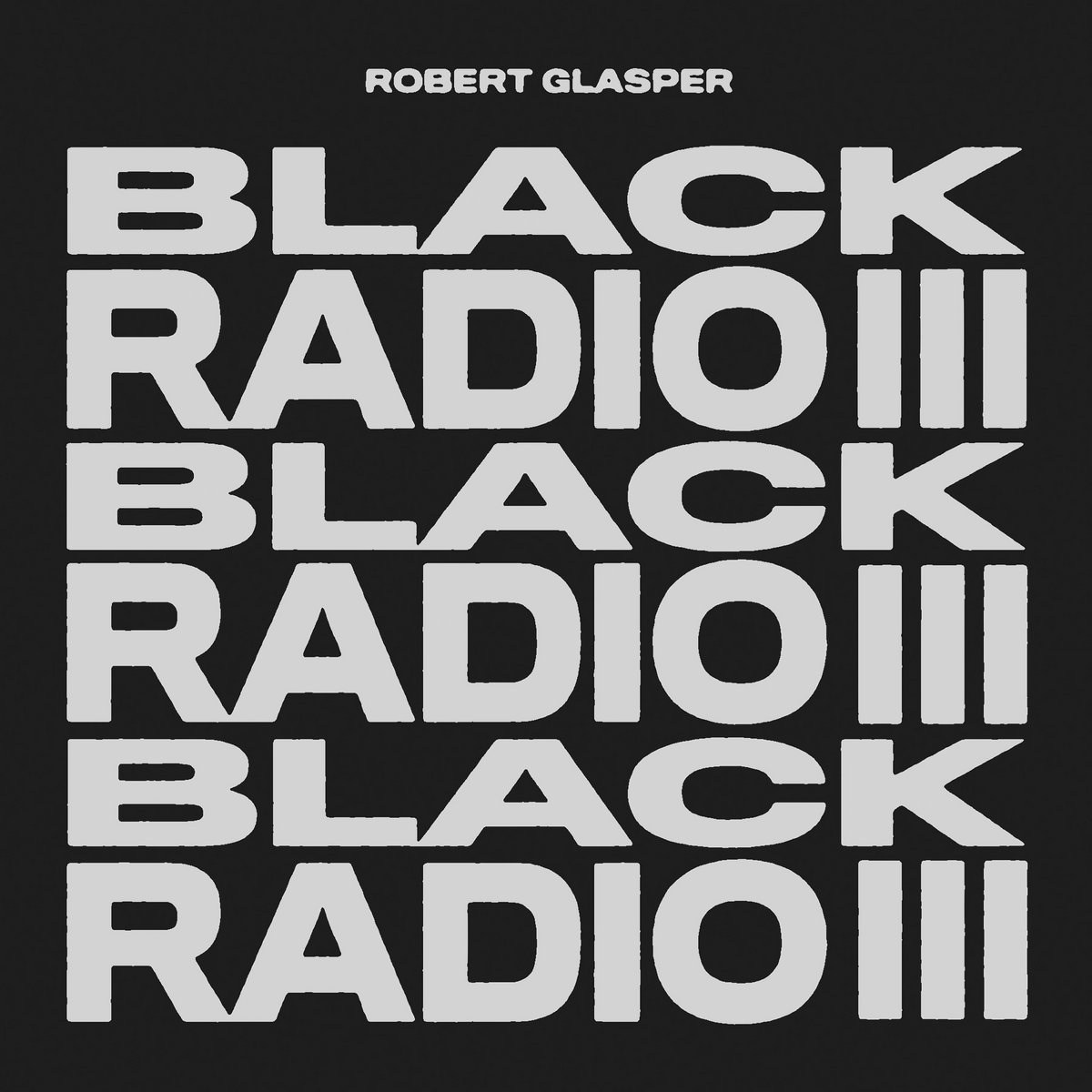Robert Glasper
Black Radio III
LOMA VISTA
Is Robert Glasper “jazz,” and does that even matter anymore? Certainly the Texan keyboardist, producer, songwriter, and arranger winds through multiple genres—often in one song—and highlights rappers as often as he does singers and instrumental solos. He’s made albums filled with opulent Miles Davis samples and all but re-invigorated the idea of “crossover” with his Black Radio LP that won the 2013 GRAMMY for Best R&B Album. But what the hell is so singularly R and/or B about it?
Into that genre-babble comes Black Radio III, his most vocal excursion yet featuring so many voices (Killer Mike, BJ the Chicago Kid, Big K.R.I.T., Q-Tip, Esperanza Spalding, H.E.R., Common, Musiq Soulchild, Jennifer Hudson, Ty Dolla $ign, and India Arie, just to name a few) that there’s nary room for Glasper’s bracing instrumental work—or even much of his melodies, once the very best part of any Glasper record. When digging through the BR3 liner notes, a sense of the overcrowded begins to take shape before his album’s begun, a too-many-cooks and too-little-broth scenario that manifests itself on the mod-neo-soul likes of “Black Superhero” and the brilliant, robotic, multi-lingual organ jazz of “Why We Speak.”
Don’t get me wrong, on occasion, having little broth and much meat is no real issue—especially on that latter track where duet partners Q-Tip and Spalding shine, soar, and wind their way through truly chewy vocal parts singularly and intertwined as one. So that works when it works. But considering the wonder of Glasper as a pianist/keyboardist (to say nothing of his in turns loose, tight, taut, and limber ensemble, including Derrick Hodge, Justin Tyson, DJ Jazzy Jeff, and Terrace Martin), a more buoyant, equitable blend of instrumentation with voice would’ve gone a long way to true sonic bliss. Guru’s post-bop-hip-hop classic Jazzmatazz comes to mind here as the pinnacle of that blend, as does the distinctive instrumental roominess that allows Jennifer Hudson her gutsiest-ever character-driven vocal on "Out of My Hands.”
What fails Black Radio III, along with its missing musicianship, is that you want it to cut deeper and sound bolder, as its spoken word elements stop short of hitting their personal-political mark, as its messages of love over hate break off before their points are executed to their logical conclusion, and as its need to display every genre at once misses a much-needed focus with its locus secured in melody. Is BR3 good? Yes. Is it even great? Mostly. But when I hear any Robert Glasper album—especially with a guest list like this one—I want to be bowled over and amazed like I was the last time. And the time before that. And the time before that.









